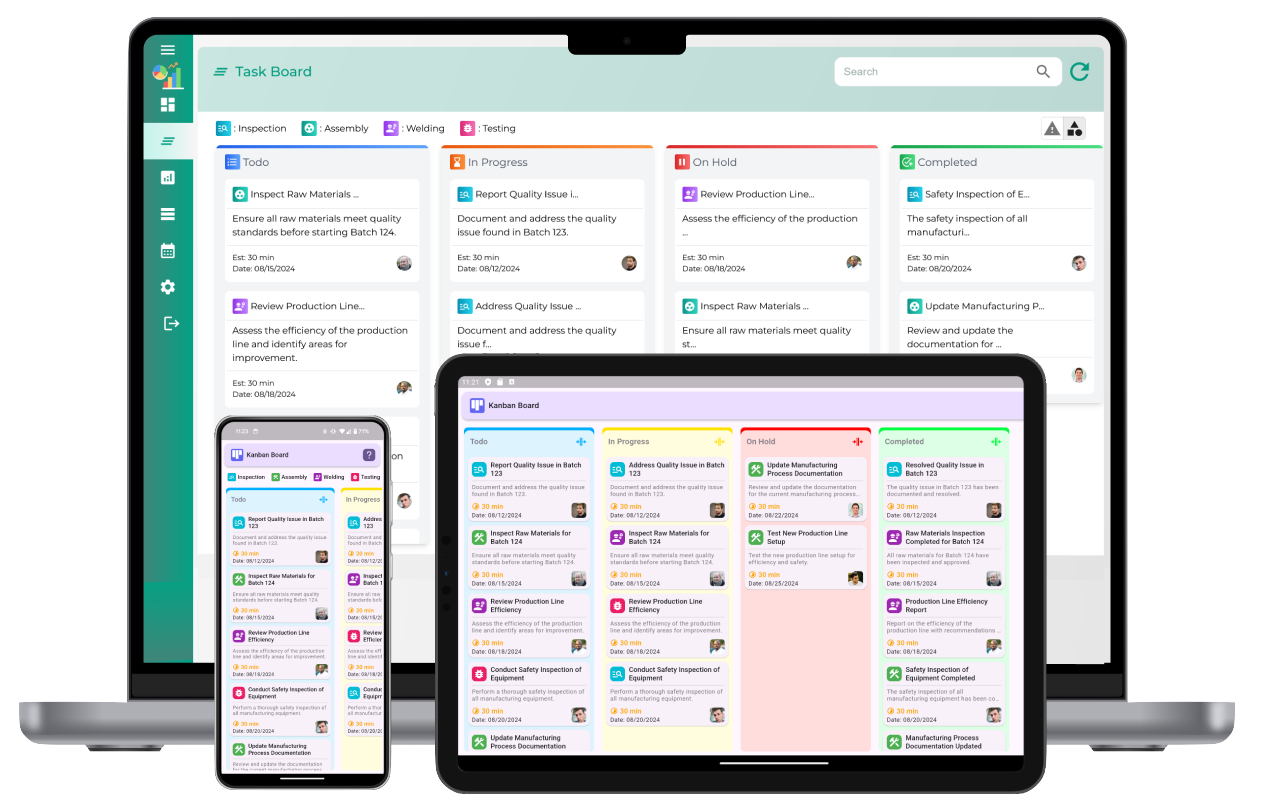In an era where efficiency and adaptability are crucial for business success, many organizations are turning to digital solutions to enhance their workflows. One such solution is the Digital Kanban Board, a powerful tool that visualizes tasks and optimizes project management. This post highlights success stories from various industries that illustrate how implementing a digital Kanban board has transformed their operations.

1. Manufacturing: Streamlining Production Processes
A medium-sized manufacturing company faced significant challenges with its production line. The traditional method of using physical Kanban boards resulted in miscommunication between teams, leading to delays and errors. After implementing a digital kanban board, the company experienced remarkable improvements:
- Real-time visibility: The digital platform provided supervisors with immediate access to task progress, enabling quick identification of bottlenecks. This transparency helped teams prioritize tasks more effectively.
- Increased collaboration: The software allowed team members to update statuses and communicate changes instantly, reducing the time spent in meetings and improving overall efficiency.
- Flexible scheduling: With the ability to adjust tasks on the fly, the company could respond rapidly to unforeseen issues, ensuring a more agile production process.
Within six months, the manufacturer reported a 25% increase in production efficiency, illustrating the significant impact of adopting a digital Kanban system.
2. Logistics: Enhancing Fleet Management
A logistics company struggling to manage its fleet effectively turned to a digital Kanban board to optimize its operations. The challenges included coordinating routes, maintaining vehicle upkeep, and ensuring timely deliveries. The transition to a digital solution led to several key benefits:
- Automated task management: The Kanban board allowed for automatic scheduling of vehicle maintenance and inspections, reducing unexpected breakdowns and downtime.
- Route optimization: Dispatchers could easily visualize routes and modify them in real time, resulting in a 20% improvement in on-time delivery rates. This enhanced reliability improved customer satisfaction significantly.
- Centralized data: Fleet managers gained complete visibility over the location and status of each vehicle, enabling quicker decision-making and more efficient resource allocation.
The logistics firm achieved a 15% reduction in operational costs within the first year of implementing the digital Kanban board, showcasing the tool's effectiveness in improving workflow.
3. Healthcare: Reducing Administrative Burden
In a healthcare setting, a hospital faced overwhelming administrative tasks that hindered patient care. The reliance on paper-based systems created delays in patient file management and coordination between departments. The implementation of a Digital Kanban Board transformed their operations:
- Task automation: Routine administrative tasks, such as appointment scheduling and patient follow-ups, were automated through the Kanban board, freeing up valuable staff time for patient care.
- Improved compliance: The system helped ensure adherence to healthcare regulations by sending automated reminders for important deadlines and necessary training sessions.
- Enhanced communication: Medical staff could easily access and update patient information in real time, improving collaboration among departments and reducing the risk of errors.
As a result, the hospital reduced its administrative workload by 30%, allowing healthcare professionals to focus more on patient care and less on paperwork.
4. Construction: Boosting Project Coordination
A construction company managing multiple projects across various sites found it increasingly challenging to maintain coordination and track progress. By adopting a digital Kanban board, they achieved significant improvements in their workflow:
- Increased transparency: Project managers gained real-time insights into the status of tasks across all projects. This visibility helped in identifying potential delays early, allowing for proactive adjustments.
- Remote access: Teams could update progress from different locations, improving communication between on-site workers and office staff. This facilitated quicker decision-making and enhanced collaboration.
- Deadline management: With automated reminders and priority flags, project managers were able to keep track of critical deadlines, leading to a 25% reduction in project overruns.
This enhanced coordination not only improved project delivery timelines but also elevated client satisfaction, positioning the firm as a reliable partner in the construction industry.
5. IT Services: Improving Agile Workflows
An IT services company looking to enhance its Agile project management adopted a digital Kanban board to better manage its sprints and workflows. The results were transformative:
- Streamlined Agile processes: The Kanban board helped teams visualize their tasks in sprints, facilitating better planning and prioritization of work.
- Continuous improvement: Teams used the board to reflect on their performance after each sprint, identifying areas for improvement and adapting their workflows accordingly.
- Enhanced team collaboration: The platform encouraged open communication and collaboration among team members, fostering a culture of accountability and innovation.
The IT company saw a 40% improvement in sprint completion rates, demonstrating the effectiveness of the digital Kanban board in optimizing Agile practices.
Conclusion
These success stories illustrate the diverse applications and significant benefits of implementing a digital kanban board across various industries. From manufacturing and logistics to healthcare, construction, and IT services, organizations are leveraging this tool to enhance workflow efficiency, improve collaboration, and ultimately drive success. As businesses continue to adapt to changing market demands, the digital Kanban board remains a vital component in the quest for operational excellence.